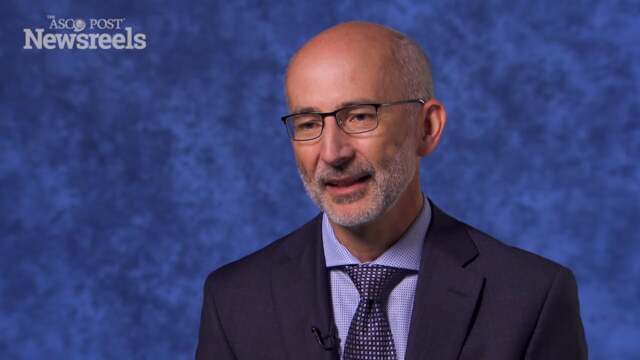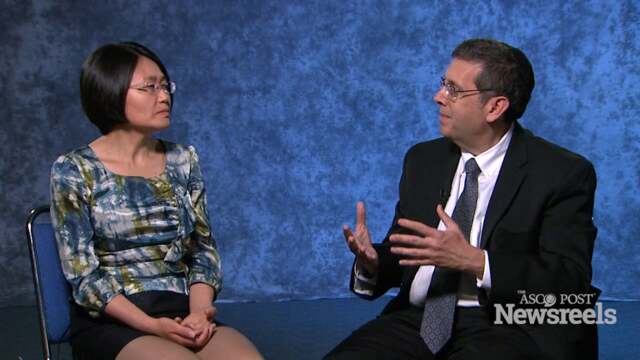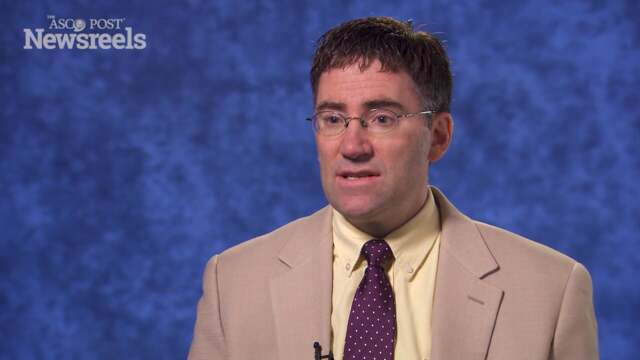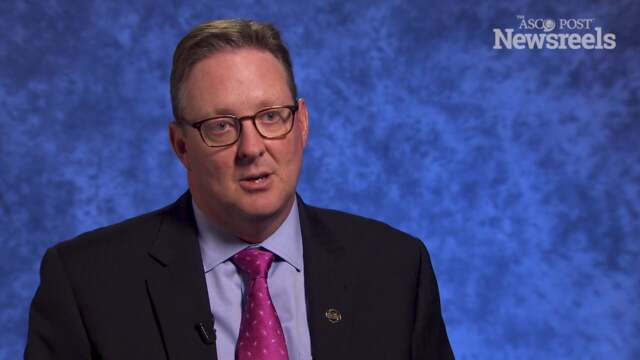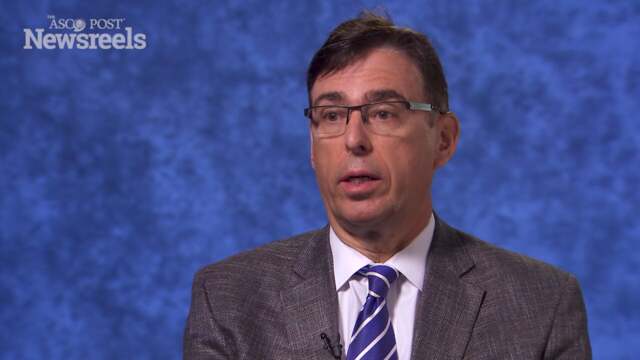Tamim Niazi, MDCM, on Prostate Cancer: Results From a Trial on Dose Escalation
2017 ASTRO Annual Meeting
Tamim Niazi, MDCM, of McGill University, discusses phase III study findings on hypofractionated, dose-escalation radiation therapy for high-risk adenocarcinoma of the prostate (Abstract 281).
Gerard Morton, MD, of Sunnybrook Odette Cancer Centre, summarizes a session that included discussion of late toxicities of radiotherapy for locally recurrent prostate cancer; using chemotherapy instead of radiation in early-stage seminoma; radiotherapy vs surgery plus radiotherapy in Gleason score 9–10 prostate cancer; and an analysis of the IROCK study on kidney cancer (Abstracts 1, 1089, 282, 330).
Shulian Wang, MD, of the National Cancer Center in Beijing, and Benjamin Movsas, MD, of the Henry Ford Health System, discuss study results on the use of hypofractionated radiation therapy after mastectomy for the treatment of high-risk breast cancer (Abstract PL01).
Christopher R. Kelsey, MD, of Duke University Medical Center, discusses reducing the radiation dose from 30 Gy to 20 Gy for patients with diffuse large B-cell lymphoma. Phase II findings show this approach may be effective in light of improved systemic treatment and better chemotherapy response assessment (Presentation 298).
Jeffrey D. Bradley, MD, of Washington University School of Medicine, discusses long-term phase III findings on standard-dose vs high-dose conformal chemoradiation therapy with or without cetuximab for stage III non–small cell lung cancer (Abstract 227).
Marcus E. Randall, MD, of the University of Kentucky, discusses phase III study findings on pelvic radiation therapy vs vaginal cuff brachytherapy followed by paclitaxel/carboplatin chemotherapy in patients with high-risk, early stage endometrial cancer (Abstract LBA1).
